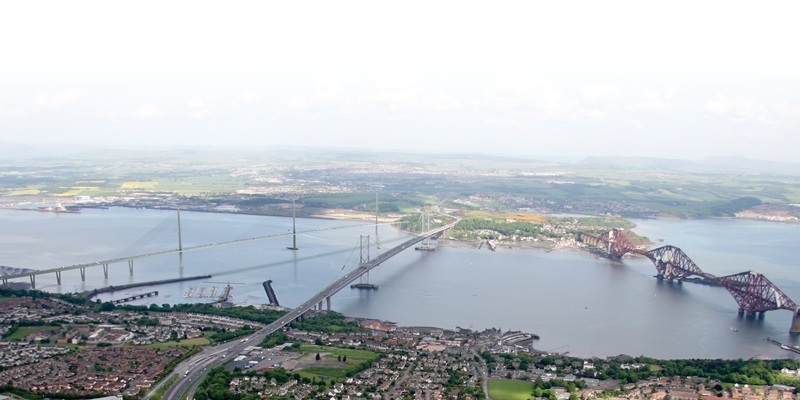Transport Scotland has confirmed there have been no legal challenges to the new £1.6 billion bridge over the Forth.
The body said both during the process of the Forth Replacement Crossing Bill and after its passing, they had not received any word of possible legal action.
Some South Queensferry residents, it was suggested, had taken legal advice to mount a judicial review of the consultation process, believing it to be flawed.
The Courier attempted to contact one of these residents, Les Chapman, but he was not available for comment on Wednesday.
On Monday, Finance Minister John Swinney and Transport Minister Keith Brown announced that the preferred bidder Forth Crossing Bridge Constructors (FCBC) had been chosen, with work expected to begin this summer.
FCBC is a consortium of Dragados, Hochtief, American Bridge International and Morrison Construction. The £790 million contract (excluding VAT and inflation) means the overall cost of the new bridge will be around £1.62 billion with work completed by 2016.
A Transport Scotland spokesman said, “We have not been notified of any legal challenge to the Forth Crossing Act.
“The Forth Crossing Bill was put before the Scottish Parliament in November 2009 and formally approved by MSPs with a vote of 108 to 3 on December 15. No legal challenge was mounted against the Bill during this period of parliamentary scrutiny.
“The Bill received Royal Assent on January 20, allowing it to come into force as the Forth Crossing Act and give Scottish ministers the necessary powers to deliver the project.”
Mr Chapman and Doug Tait, both of Echline, South Queensferry, in evidence to a parliamentary committee prior to the passing of the Forth Replacement Crossing Bill, complained about lack of consultation by Transport Scotland.
Mr Chapman, Mr Tait and Peter Fitzgerald said they felt the consultation process was “inadequate, misleading, highly selective and well short” of the standards required of the Scottish Government.
They said, “The decision to site a new gyratory at Echline Corner was communicated by Transport Scotland but only to a select group of members of the local community council.
“To impose a gag on the local community council, Transport Scotland deliberately sought to prevent the involvement of the public in the process by preventing the community council from carrying out its legal duties.
“Their fundamental change only became public knowledge three months later at a public exhibition, when we were informed this decision could not be revisited and any objections would have to be deferred until after the Bill had been submitted to Parliament,” they added.
The residents said they felt the public exhibitions held were not “exercises in consultation” and they criticised the lack of scale models of the proposed scheme.
They concluded, “Local residents have been denied vital statutory rights in the framing of the bill, and are moved to object forcefully to it on these grounds.”
Mr Tait and Mr Chapman also attended an assessor’s hearing on the new bridge on September 2 last year and objected to the bridge on the grounds of loss of amenity, future legal rights and ownership regarding rights of servitude.
Mr Chapman told the hearing there had been issues of communication with Transport Scotland and dissatisfaction with the process of consultation with Transport Scotland.
“That is the reason for our unease our significant concern about the future six years in which we will have on our doorstep a number of significant features that are not there at the moment.
“We are the closest, by far, to the Echline corner gyratory, we are the closest to the new junction between the B924 and the A904, we are the closest to the southern approach road and we are the closest to the construction site compound entrances on the B924 and the A904.
“The impact on our lives will be extremely significant,” they continued.
“We bought our properties with a view to looking out over green fields and enjoying the pleasant surroundings, which will change dramatically over a period of six years.”
